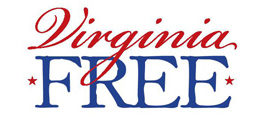Sen. Dick Saslaw has introduced a repeal of Virginia’s Right to Work Law, SB 426, called the “Fair Share Fees” bill. You can find the summary at the bottom.
The National Right to Work Committee released a statement regarding the repeal bill. Below is the statement in its entirety:
Press Release from National Right to Work Committee:
Saslaw Introduces Right to Work Repeal Bill
Springfield, VA (January 10, 2020)
National Right to Work Committee President Mark Mix today slammed Virginia Senate Majority Leader Dick Saslaw, charging he is both intellectually dishonest and acting against employee choice.
At issue is the fact that on the final day before the Virginia General Assembly opened, Senator Saslaw introduced Senate Bill 426, which would require workers to pay fees to a union boss as a condition of employment.
This happened despite statements during the campaign that he would not attack Virginia’s Right to Work Law.
”Make no mistake about it: If Virginia passes any law which forces workers to pay union dues — or “fees” by any name — to get or keep a job, that constitutes repeal of Virginia’s Right to Work Law,” said Mix.
Mix continued, “That’s true regardless of any word games union-label legislators attempt to play around the bill.”
For Months, Saslaw and Governor Northam Talked Down Right to Work Repeal
This bill came as a shock to many Right to Work supporters, because for the last several months, both Saslaw and Governor Ralph Northam had publicly downplayed the possibility of Right to Work repeal.
In fact, when asked about Right to Work repeal in October, Saslaw said, “There’s not much of a movement, in the Senate, to do that.”
Right to Work Not Only Morally Right But Economically Beneficial
“Of course,” said Mix, “repeal of Right to Work would not only be anti-worker choice, it would clearly be bad for Virginia’s economy.”
Statistics continue to show Right to Work states far outpace forced-unionism states in job growth.
In fact, a January 4 Washington Post article reported that in the first ten months of 2019, Northern Virginia gained 19,500 jobs from a year earlier, compared to just 200 jobs in suburban non-Right to Work Maryland.
Yesim Sayin Taylor, Executive Director of the D.C. Policy Center, noted, “When large headquarters move to the metropolitan area, they almost never consider Maryland and D.C. They invariably locate in Northern Virginia, and that’s now snowballing…”
Meanwhile, according to the National Institute for Labor Relations Research, Right to Work states see an overall advantage of nearly $4,300 in household income when cost of living is taken into effect, while Virginia enjoys a nearly $14,000 advantage in that statistic compared to forced-unionism states nationally.
In looking at Governor Northam’s stand on the issue, in late November he told his Advisory Council on Revenue Estimates, “I can’t foresee Virginia taking actions [that would include] repeal of the right-to-work law.”
Additionally, Right to Work repeal was conspicuously absent from both Governor Northam’s State of the State Address and the Democrats’ 11-point “Virginia 2020 Plan” for the legislative session presented on Tuesday.
“I find it disturbing to say the least that on the same day Dick Saslaw stood up on stage with Governor Northam and Speaker Filler-Corn to present their legislative agenda, he’s also slipping in a Right to Work repeal bill under the radar,” said Mix.
Mix wondered, “Why on earth would politicians like Dick Saslaw want to give up the advantage Right to Work has given Virginia over its non-Right to Work neighbors?”
Mix concluded, “It’s time Virginians tell their legislators that forced unionism by any name is just plain wrong.”
###
The National Right to Work Committee, established in 1955, is a nonprofit, nonpartisan, single-purpose citizens’ organization dedicated to the principle that all Americans must have the right to join a union if they choose to, but none should ever be forced to affiliate with a union in order to get or keep a job. Its web address is www.nrtwc.org.
SB 426, SUMMARY AS INTRODUCED:
Fair share fees. Authorizes an employer, pursuant to an agreement between the employer and a labor union or labor organization, to require as a condition of employment any employee who is not a member of such labor union or labor organization and is a member of a collective bargaining unit, where the labor union or labor organization is the exclusive representative of the members of the collective bargaining unit, to pay a fair share fee to compensate the labor union or labor organization for the costs of representing the nonmember employee. The bill defines a “fair share fee” as the pro rata share of the portion of a labor union’s or labor organization’s dues attributable to activities stemming from its duty to represent all employees in a collective bargaining unit without regard to membership in the labor union or labor organization, including (i) the cost of all activities germane to collective bargaining, administration, and enforcement of collective bargaining agreements; (ii) representation of employees before public bodies in matters that are germane to either collective bargaining agreements or employer-employee relations; (iii) representation of employees during grievance procedures; and (iv) labor union or labor organization governance and administration. Under the bill, a fair share fee does not include the cost of any political activities, lobbying, organizing, charity, donations, or community service activities undertaken by the labor union or labor organization, and in no case will the fair share fee exceed 60 percent of dues required of a similarly situated member of such labor union or labor organization.

Leave a Reply